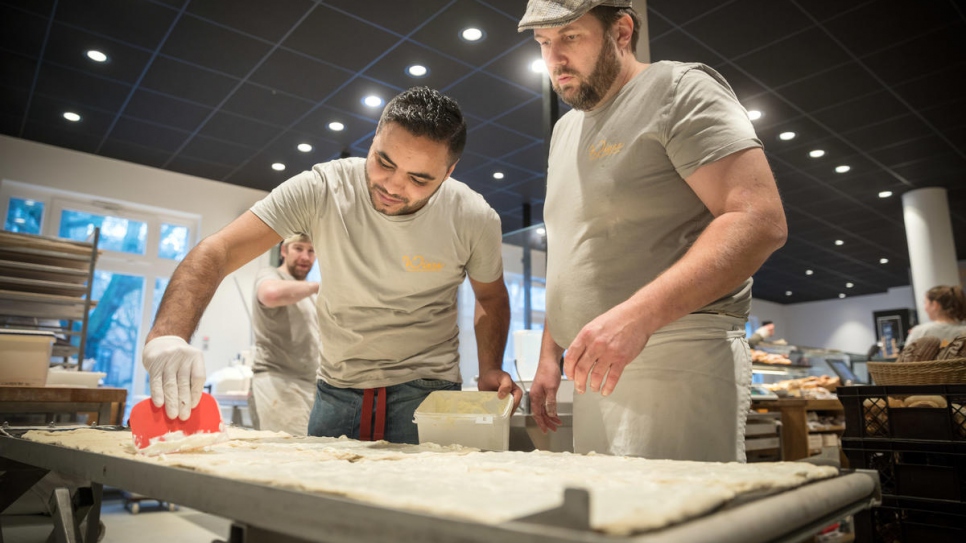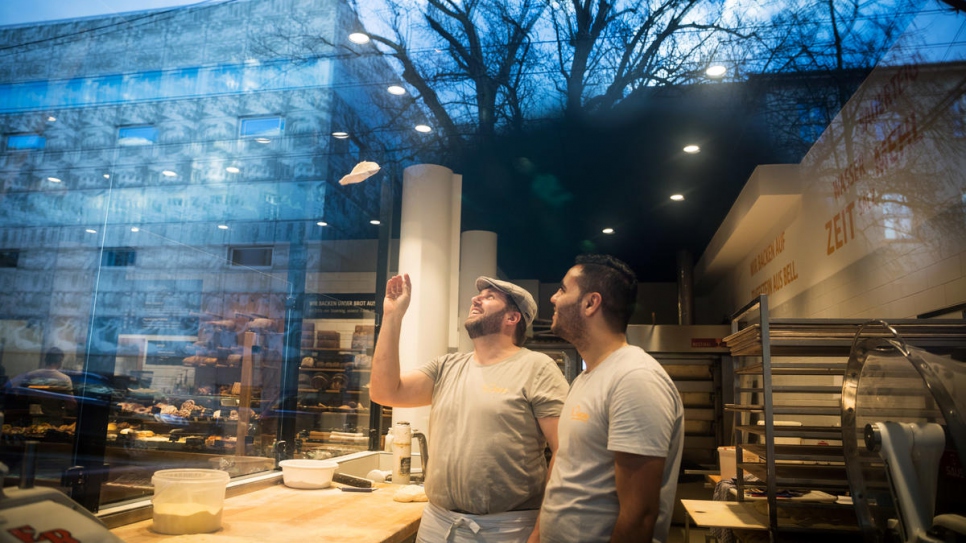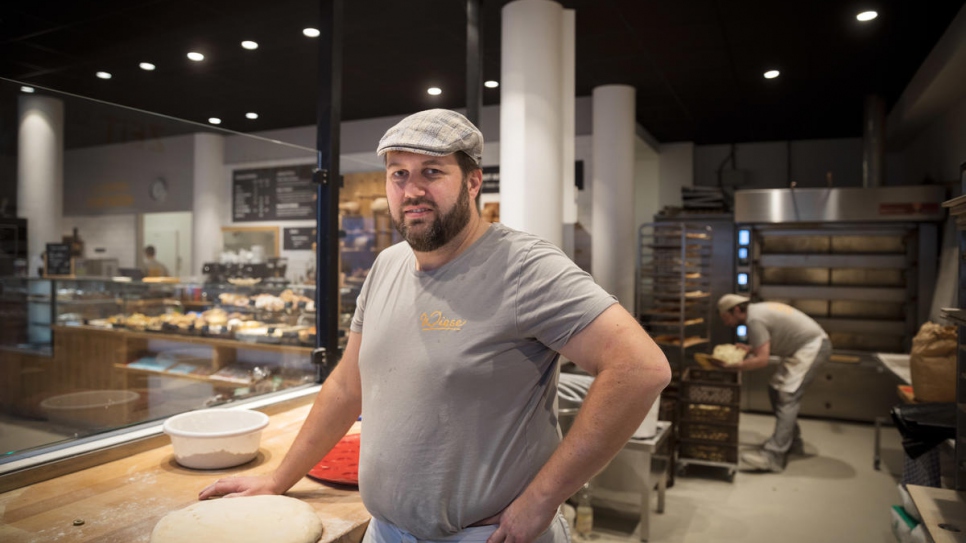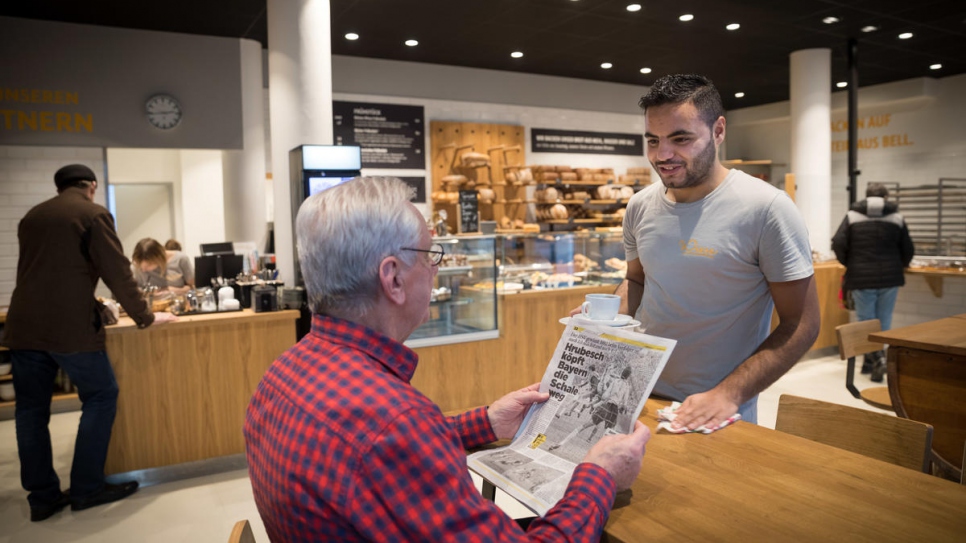Mohamad Hamza Alemam had never tasted German bread until he set foot in Björn Wiese’s bakery. From that moment on he was hooked.
Now a trainee sales assistant, the 23-year-old Syrian hopes to learn the secrets of German breadmaking and one day take them home with him.
“I love that there are so many different types of bread here,” says Mohamad, during a break at the Privatbäckerei Wiese bakery in Eberswalde, in north-eastern Germany. “When I go back to Syria one day, I hope to take a little bit of this German culture, this German bread, with me. Maybe I’ll open a German bakery there.”
It was two years ago when master baker Björn first hit upon the idea of training and employing newcomers in his chain of three bakeries.
“I love that there are so many different types of bread here."
“We wanted to bring people together through food,” says Björn, 46, who belongs to the third generation of bakers in his family. “Of course, employing people from different culture to your own can be hard work sometimes, but it’s doable."
Björn now employs ten refugees and asylum-seekers. Together, they make up a sixth of his workforce and among them are several trainees like Mohamad, who started out as a part-time employee.
“I didn’t want to stay home alone and do nothing,” says Mohamad, who had applied unsuccessfully for many jobs before joining Björn’s bakery earlier this year. “I wanted to work so I could improve my German, to do something with my time.”
Although he has been learning German since he first arrived in 2015, the language barrier was Mohamad’s biggest challenge. He was afraid of making mistakes in front of customers. However, colleagues helped and his confidence improved.
“Having this work has completely changed my life,” says Mohamad. “Over time it got better and better, every day I liked the job a bit more. My colleagues are all nice and the boss is even nicer. They always understand what I’m trying to say and are always ready to help with whatever I need.”
Mohamad says it was Björn’s warm welcome and dedication to his staff that made him decide to commit more seriously to the bakery job. This summer, he asked Björn if he could progress to become a trainee sales assistant. Björn agreed, helping Mohamad to work towards a vocational qualification.
“Having this work has completely changed my life."
Now a full-time member of the team, Mohamad is learning how to run the shop and cafe, as well as the basics of breadmaking in Björn’s on-site bakery.
“This traineeship means I can build a life here,” says Mohamad. “It means so much to me to have a secure future.”
For Björn, seeing the difference he can make in the lives of employees like Mohamad makes all the hard work worth it. It is a message he would like to pass on to other business owners.
“When I see how much it’s appreciated then I’m happy to do it,” says Björn. “Especially with refugees, because they’re looking to build a new life. When you offer people prospects you get so much commitment and appreciation in return.”
It is the commitment of business owners like Björn Wiese – as well as mayors, volunteers and other community leaders – that helps to promote integration in many parts of Germany.
“They are the driving force,” says Dominik Bartsch, the Representative for UNHCR, the UN Refugee Agency, in Germany. “They do not concern themselves with the politics of integration but roll up their sleeves, speak with refugees as equals and offer tangible prospects.
“Every city, every municipality should identify such individuals and support them. They are the key to empowering refugees and enabling them to flourish, and to give back to the community.”





